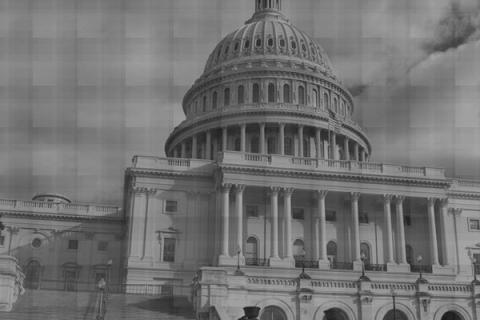According to a report from Drudge late Thursday, Republican presidential candidate Mitt Romney is considering former Secretary of State Condoleezza Rice for vice president. Rice, a black female Republican, would surely shake up the race in ways others couldn't, but only for a short time and not in any way Romney wants.
According to a Drudge poll, nearly 63% of Republicans were satisfied with the prospect of a Rice candidacy. Internet polls are notoriously inaccurate and this one makes Rice the political equivalent of a football team's back-up quarterback: the most popular person until he actually gets onto the field and fans realize why he was on the sideline in the first place.
Once rank and file Republicans learn more about her their perception will change. First, Rice's selection would have the opposite effect of the Sarah Palin pick four years ago. Whereas John McCain picked a VP easy for the base to identify with as "one of us," the pro-choice Rice would actively alienate the base and shine light, once again, on the fact that the man at the top of the ticket has a contorted history on abortion as well.
The second way Rice is no good from the Republicans' point-of-view, should the Democrats choose to exploit it, was her notorious statement, "The only problem, of course, was that when the Founding Fathers said, 'We the people,' they didn't mean me." This reveals a rather conventionally liberal reading of history. Rice disdains the Founding Fathers so frequently invoked by Republicans because slavery was protected in the Constitution and only became proud of her country with the advent of the Civil Rights Movement. Rather than being "one of us," Condoleezza Rice would be perceived by rank and file Republicans as more like "one of them."
But evidently the buzz for a Rice candidacy surfaced after she gave a stem-winder at a Romney fundraiser in late June. Rambling that America is not just "any other country," a clear swipe at the untrue assertion that President Obama believes America is unexceptional, Rice uncharacteristically threw out some partisan red meat. And just to show that she learned nothing from the consequences of her policies she continued:
"And just any old country would not have gone to Baghdad and Basra and Kabul and Kandahar to try and deliver a better future for those people and with that future a better and more secure future for ourselves. And so we have got to have a president of the United States who understands the essence of who we are."
This is the most obvious mark against Rice. She is not only a relic of the Bush administration from the first day to the last, but she held very high-profile positions as national security adviser and secretary of state. There is no way to hide that she was prominent in crafting many of the policies that eventually made the Bush administration so unpopular.
Her choice of words at the fundraiser indicated that her idea of American self-worth is inextricably bound up not in the Bill of Rights but in military might and a willingness to use it even when the original justifications were not honest. That she has emerged as a credible VP candidate because of this speech says that Romney agrees that these were good policies too.
Romney, and almost all Republicans, refuse to even mention George W. Bush's name. This is an admission that Bush is still a polarizing figure and that many Americans believe Bush is at least partly responsible for today's political situation.
With a continually sagging economy, Romney already has the weapon that can delivery victory: Obama's poor job growth record. The pundits are right. Rice's nomination would change the game. It would turn the election from a referendum on Obama to another one on Bush.
With an increasingly unpopular incumbent, the challenger is the natural home for independents and therefore victory in the general election. But as at least one commentator has noted, it may take more than simply being "Not Obama" to win the election. After all, an unenthusiastic challenger from Massachusetts could not defeat a vulnerable incumbent in 2004 with a platform that simply read "Not Bush."
On Saturday, this writer made the case that most governors who become president end up perpetuating the status quo because as state government figures they have not busied themselves with the business of Washington, so they end up absorbing the biases of the Washington veterans they inevitably employ. Romney's history of statements, especially regarding foreign policy, show that he is not equipped to counteract the influence Rice would have on him. Romney-Rice would validate this paradigm.
Unless Romney makes the unusual selection of someone like Ron Paul, he is going to be stuck with a VP who has at least some baggage from supporting Bush. But the choice of Rice, whose approval ratings by the time she left office didn't top 40%, is uniquely bad. Not only does she alienate most of the constituencies she is meant to attract, she is an unambiguous link to an unpopular and corrupt administration. But above all, it is a crystal-clear sign that Mitt Romney is not a man who will change the status quo in Washington, but one who will preserve it.

